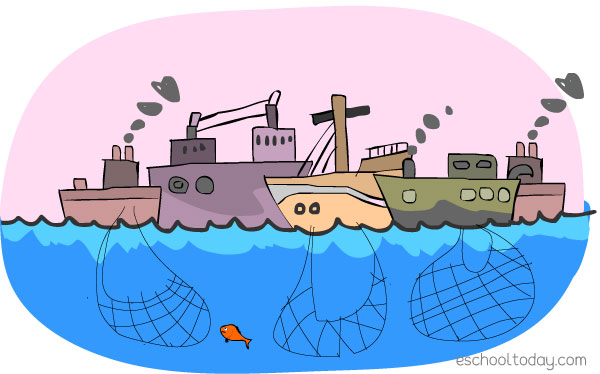- Overfishing
What is overfishing?
Overfishing is simply a situation where humans catch too much fish from the oceans (and also water bodies) in such massive amounts and at a fast pace than nature can naturally replenish. In other words, it is when we take out more fish than the fish can naturally replace. That leads to a degradation of our oceans, making it a non-sustainable use of the world’s oceans.

In recent times, technology, better equipment, and human’s want for more money have made it easier for fish to be caught with less effort. Unfortunately, as we catch more and more fish, they run out, and both commercial and non-commercial fishermen have to go deeper into the sea to get fish. This is particularly a scary scenario for the Bluefin Tuna species.
The population of Bluefin Tuna has reached a critically low level, with all scientific advice agreeing on the need for a drastic reduction of fishing levels and a fishing closure during the spawning season to allow the stock to recover. Failure to act will push bluefin tuna fishery to extinction, says IUCN, 26 November 2008 | News story.
Scientists and researchers report that fish populations have fallen to a level that can be called a crisis. What makes matters worse is that other marine animals are destroyed in the process.
The FAO has pointed out that about 25 percent of the world’s captured fish end up thrown overboard because they are caught unintentionally, are illegal market species, or are of inferior quality and size. Many of the fish caught this way include endangered and overexploited species, 95 percent of which are eventually thrown away. www.dujs.dartmouth.edu
